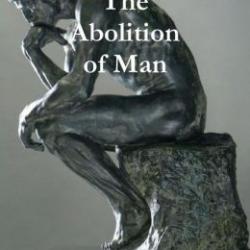
Recently, I heard a Lutheran brother say that we do our best to interpret Scripture – both prayerfully and thoughtfully – but that we could be wrong on most matters because we could be missing something important.
This got me wondering whether or not most conservative Protestants would at the least think that they could be wrong on a few matters. Might they ask, for example: “How can anyone with an ecumenical bone in their body think any differently?” See, for example, this post from James Swan, titled “We Believe the Bible and You Do Not”.
This put me in mind of a post I wrote last year entitled, “Good, Right, and Salutary Certainty vs. Brian McLaren, ‘Bible 3.0’ and Protestant Confessionalism?” I am re-publishing it here, in the hopes that it might be helpful to others thinking about these issues – and to give others an opportunity to help me. I am still trying to get a handle on all these issues, and my guess is that Pastor Cooper’s latest book, The Great Divide: A Lutheran Evaluation of Reformed Theology*, is going to make me think about them even more.
Here’s the post:
The issue of certainty – particularly as it regards the certainty of one’s salvation – has always been a monumental issue for Lutherans (read here). This is one reason why Kierkegaard, for example, discussed in my last post, does not adequately represent the Lutheran tradition. Kierkegaard wrote a lot to make persons doubt their Christianity, but not much to give them certainty about it….
Hence, I was quite surprised when I read in in the apologetics textbook by Kenneth Boa and Robert Bowman, Faith Has its Reasons that as regards evidentialist apologists…:
“It is surely no accident that theological traditions that downplay or deny human certainty about one’s salvation also downplay or deny the possibility of rational certainty in apologetic argument. Arminians and Lutherans believe that Christians should be reasonably confident of their salvation but should not expect to be absolutely certain of it….” (p. 493)
“Good grief, I thought – what kind of impression have confessional Lutherans been giving?” Lumped in with Arminians and those who have no certainty of salvation in an otherwise superior apologetics textbook! (I have run into this issue in the past, but I was not aware of how widespread this misconception is). On the other hand, Boa and Bowman say that “Reformed theology emphasizes personal assurance of salvation based on the certainty of God’s sovereign purpose and his promise in Scripture…” (p. 494) That might be the case, but there are good reasons for questioning just how assuring this assurance is (see here for a short post summing up my amazement at the positions of Roman Catholic Andrew Preslar and the Reformed apologist Steve Hays). From our side of the fence, let me be very clear: Lutherans insist that we can be certain – should be certain! – that we are in a “state of grace”, or that we are at peace with God (Rom. 5:1 and I John 5:12-13).
So the other morning I also came across this interesting bit from that same textbook:
“Fideists may even agree with postmodernists that some contemporary forms of apologetics operate under hidden modernist assumptions. The apologist should take this concern seriously. While we should not abandon our belief in absolute truth and the objectivity in reality, we ought to acknowledge that all human knowledge – even the knowledge that Christians have from reading the Bible – is partial, imperfect, and held from a limited point of view. In Scripture we have absolute truth presented to us, but we do not have absolute knowledge of absolute truth.” (p. 492, Boa and Bowman)
And so now, in the context of this apologetics textbook, we begin talking about certainty regarding one’s theology as well. Today, it is generally held that Christians of all stripes who take the Bible seriously should not be too tenacious in their own commitments. Children of Immanuel Kant all, when we discuss the Bible we are supposed to talk about our “perspectives” on the text. We are not supposed to say things like “this is what the Bible actually says”, or, “what my church teaches is true” or, perhaps the biggest no-no of all: “by virtue of our doctrine, we are the church”.
Well. I could not help but think about that when I heard about a recent article talking about Brian McClaren’s “Bible 3.0” (talked about by Pastor Jonathan Fisk on Issues ETC the other day)
From the article that talks about this we read
What is different about this era, that is key to Bible 3.0, is the fact that everyone can now be involved in challenging not just what the Bible says, but the way we have traditionally understood what it says. “It’s not just that it’s being challenged and contested, it’s that everybody knows it is being challenged and contested.”….
….The very fact that so many people are now aware of how many different interpretations there are of single passages or entire books of the Bible is helping to move us into the era of Bible 3.0. Under Bible 3.0, he says, it doesn’t matter that the Bible is inerrant, because so many us derive completely different meanings from the same inspired, inerrant texts.
I think it does us well to see how what McClaren says here has some significance – at least as regards certain quarters of Protestant confessionalism. From what I have come to learn (and feel free to attempt to unlearn me), we do not all view the meaning and significance of our confessional statements in the same way. Check out this post from the LC-MS President Matthew Harrison quoting the 20th c. Lutheran saint Herman Sasse here.

And this brings me back to the first quote from Boa and Bowman as I think there is a potential problem with what they say. While on the one hand we can talk about our knowledge being “partial, imperfect, and held from a limited point of view” we should be more ready to talk about how it can also be sure, certain, and true – even if mystery remains and our knowledge has not been brought to its completion.
As Luther said, the Holy Spirit is no skeptic. This will be challenged of course, but the Lutheran Reformers – and it appears some of the very first Reformed confessors (again see the Harrison post mentioned above) – took this kind of approach for granted. And I suggest that it is precisely because of this stubbornness – faithfulness – that they were able to hold the line and preserve the heart of the Gospel against Rome who would make such certainty null and void.
And further, it is also because of this point of view that we can have good reasons for explaining how it is that Christians exist even in what we have called “heterodox” churches: because wherever the clear words of the Gospel are preached – drawn from the pure well of the Holy Scriptures – persons will be brought to faith in him.
I would suggest that this whole idea of surety and certainty is not a modernist point of view, but an ancient Christian point of view.
To read more about this kind of thing, you can look at a couple posts I did several years ago about the “arrogance of the infant”, making the connection of child-like faith with Lutheran theology (here and here)
FIN
Notes
* From the post: “While seeking to help both sides come to a more nuanced understanding of one another, and writing in an irenic tone, Cooper contends that these differences do still matter. Throughout the work, Cooper engages with Reformed writers, both contemporary and old, and demonstrates that the Lutheran tradition is more consistent with the teachings of Scripture than the Reformed.”












